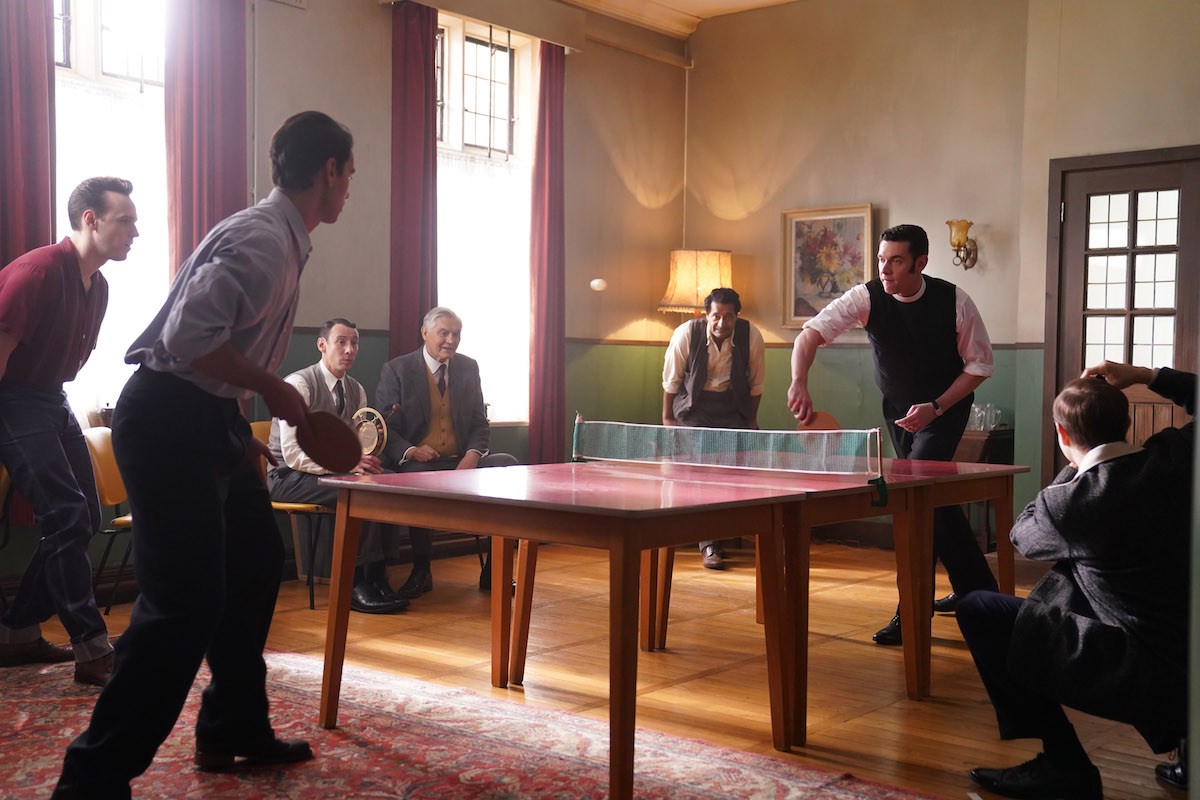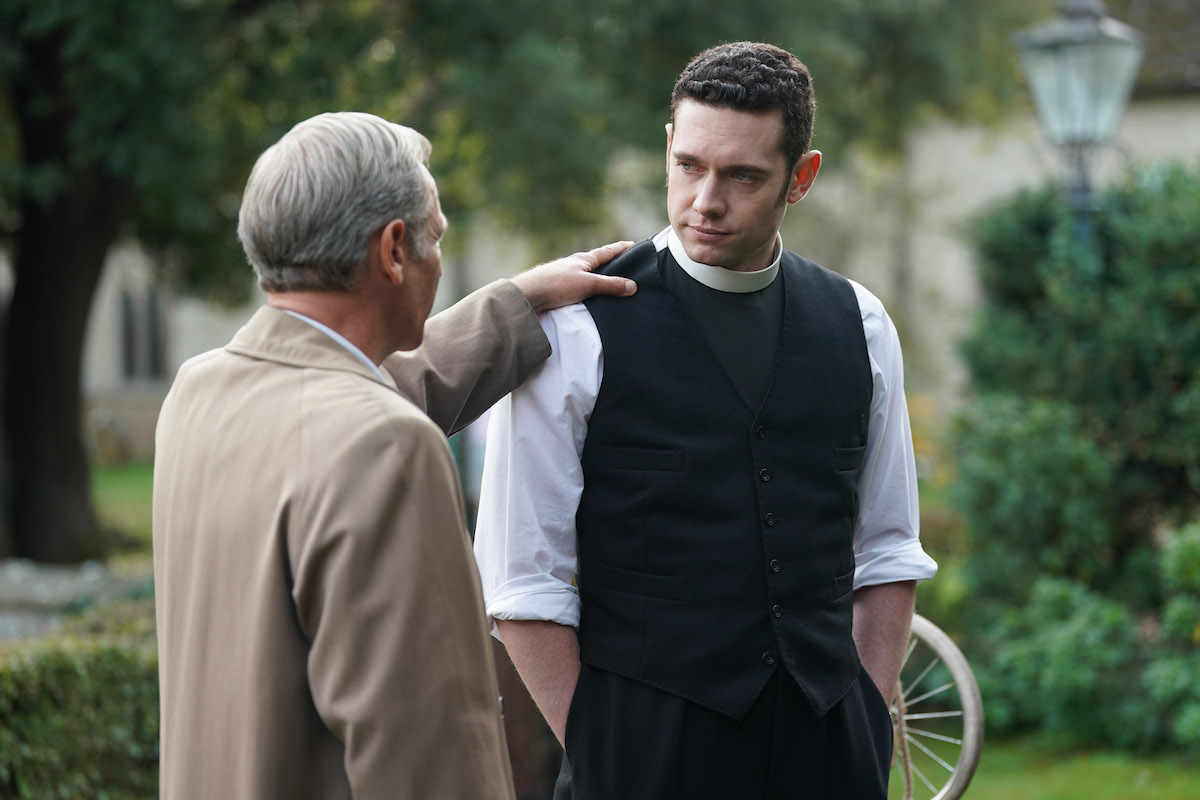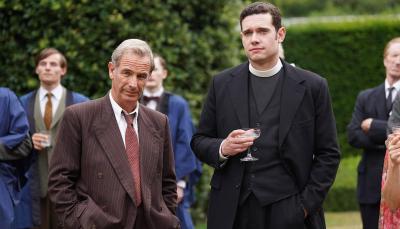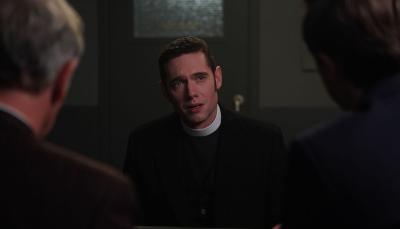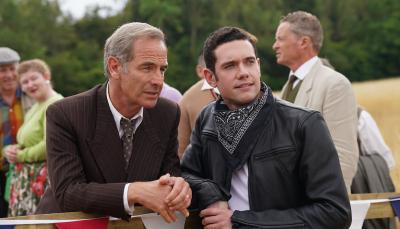'Grantchester' Season 8's Fourth Episode Feels Like the Beginning of an End
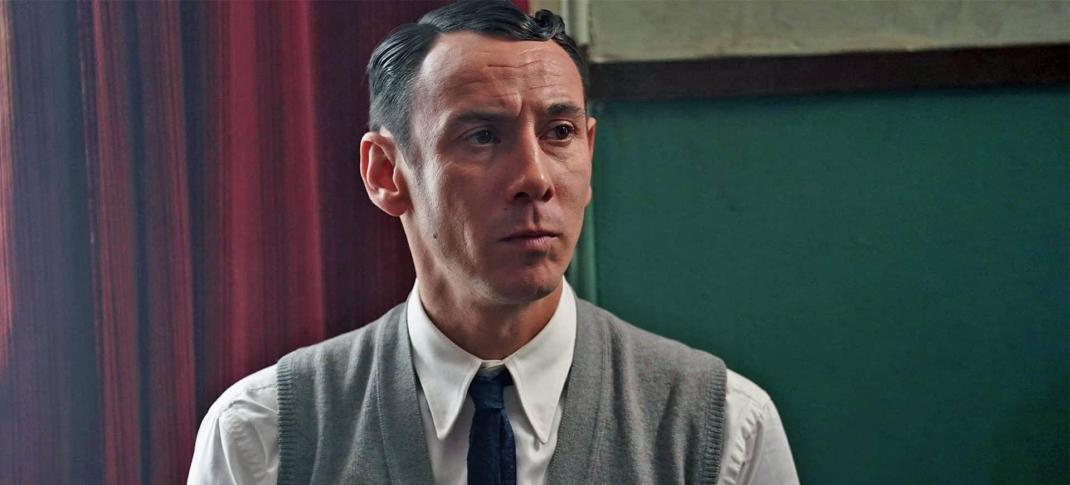
Al Weaver in "Grantchester" Season 8
(Photo: Courtesy of Kudos and MASTERPIECE)
Even if Masterpiece hadn't already announced that Tom Brittney would be leaving Grantchester at the end of this season, at this point, I think most of us would be expecting it. (Though, admittedly, I do appreciate the powers that be confirming that the show will continue with Whitstable Pearl star Rishi Nair.) Season 8's primary arc this far has been about Will in varying states of emotional and professional crisis, as he struggles to come to grips with the accident that left a stranger dead. From recurrent PTSD episodes and grouchy chainsmoking to an inability to turn to the faith that has for so long given him comfort and a fear that God has abandoned him, it's very obvious that Will is spiraling, and that's before he started sneaking a dead boy's anti-anxiety medication.
Will's slow-motion emotional collapse isn't particularly shocking --- his repeated insistence that he's totally fine to all and sundry, his outsize reactions to almost every element of the cases he's worked on recently, his obvious and palpable fear that he's been somehow abandoned by the God he's spent so long-serving --- but it is rather heartbreaking to watch unfold.
WIth just two episodes left in the season, it feels increasingly unlikely that this is an issue that can (or should) be neatly tied up before the final credits roll. In fact, it's hard to imagine a scenario where Will's situation, whether due to some sort of internal moral debate about whether he can live with himself in the wake of what happened or the damaging external forces of what is surely his new drug addiction, allows him to remain in Grantchester. He's miserable, and a fresh start for him, his family, and their new baby certainly makes more sense as.an exit strategy for his character than a sudden interest in the American civil rights movement did for James Norton's Sydney Chambers a few seasons back.
Particularly when, for whatever reason, Grantchester has been rather loath to look too closely at Will's mental state. (At least not in the most direct sense.) Instead, we're seeing Will almost as through a glass but darkly, witnessing his pain as it flows through the actions of his everyday life rather than his words. The sermons and voiceovers that usually clue us into the show's larger themes are noticeably absent and while God is mentioned, He is as often referenced with a sense of fear and anxiety as comfort. (And even when he tries to write out his feelings in a letter to Bonnie, he finds himself tongue-tied and stifled.)
Over the course of the hour, struggles to find a way to comfort a young man named Alfie, who blames himself for the suicide of the girl he loved. His repeated insistence that the sins we've committed don't define us rings pretty hollow when he can't manage to get through more than two sentences of prayer with someone who's clearly suffering so much. Everything seems to be reminding Will of the heart he's caused, whether he wants it to or not, and he takes his frustration out on everything from Geordie to the wood he's chopping in the backyard.
Will worries that Alfie's death is some form of divine retribution for the wrong he did Heather, the girl he loved and left after learning her family wouldn't approve of their marriage. and he fears that the same judgment is inevitably waiting for him, too. It's a classic example of hubris --- or possibly even the sin of despair --- for a vicar to suddenly decide that they've done something so awful no one can forgive them, not even God, and Will's pretty much wallowing in it.
The episode's larger mystery revolves around a mysterious death at Leonard's halfway house: The murder of the same boy Will tried so hard to comfort earlier in the hour, and the fact that his death is sloppily set up to look like he killed himself. Since most of the men currently living at Leonard's boardinghouse are ex-cons, pretty much everyone, including Geordie, is convinced that this is a "the call is coming from inside the house" kind of thing: A fight gone wrong, an argument over something seemingly trivial, a drunken quarrel gone wrong.
After all, Leonard hasn't exactly bothered to institute anything like rules or structure at his establishment. There are no curfews or consequences, and several of his residents have indicated little desire to get back on their feet and lead a virtuous life. Of course, everything's.a mess and they're probably lucky there hasn't been police activity there on the regular before.
But, despite the inclusion of several red herrings sprinkled throughout the episode, the conclusion of who, exactly, killed Alfie turns out to be a surprisingly longtail mystery. In many ways, it's understandable that parents want to get revenge for the child they lost, or to stop the man who hurt her from walking free, but the revelation that the groundwork for this murder has been laid out for weeks is something else.
Duncan, one of Leonard's residents, and Martha, the center's kindly new housekeeper, are not at all who they appear to be. In fact, they've basically lied their way into Leonard and Daniel's establishment on the hunt for Alfie. You see, they were Heather's parents, and they still blame him for her death. And they're out to get justice by any means necessary, even if it means running a stunningly successful long con under fake identities and backstories in order to put them both inside the halfway house at the same time. (And here we thought Martha just loved spreading human dignity around. Joke's on us, I guess.)
It seems as though their murder of Alfie wasn't entirely intentional, perhaps a panic-stricken response to his repeated refusal to admit that he'd killed their daughter, but either way, it's unlikely either of them really mind that he's dead. Or even care all that much if he actually physically killed Heather. In their eyes, his presence in her life is responsible for her death, whether he stabbed her to death or simply drove her to despair. The utter lack of remorse here is almost refreshing, it's so rare to find a culprit as clear-eyed and definitive about what they've done. Unrepentant to the last, Martha/Phyllida just asks Geordie, as a man with daughters, what he would have done in her shoes.
For all that this episode is technically set in Leonard's domain, Al Weaver doesn't get a huge role to play in this mystery. He's upset, of course, that someone he'd been trying so hard to help is dead, and he resents Geordie's insinuations that refusing to enforce any rules is actually harming those in his care. He also feels guilty and unfairly blames Daniel for getting him out of the house on the night Alfie was killed. And Daniel, bless him, has finally had enough.
We've spent a lot of time over the past few seasons watching as Leonard has discovered that there are many ways to serve God, both within and outside of the official structure of churches and religious rites. But rarely has Grantchester confronted his guilt so forthrightly as it does here --- because, of course, Daniel's right. Leonard is constantly punishing himself for abandoning God, or, rather, for choosing to put something else in his life above his duty to God. He's chosen his own truth, his own happiness, and he's chosen Daniel, all over the life he was technically supposed to want, but in the end rejected.
And he's not sorry about it --- I think he'd actually feel better if he did feel bad about it in some way -- which is why he's constantly punishing himself and the people around him. But the problem is, no matter how many sinks he scrubs or homeless former convicts he helps, it'll never be enough. At least not until he accepts for himself the same thing he tells everyone else --- that God loves us no matter what we do, and that there are ways to reflect that love back to the world around you without diminishing yourself in the process.
(Where's my Leonard spinoff, is what I'm saying.)

